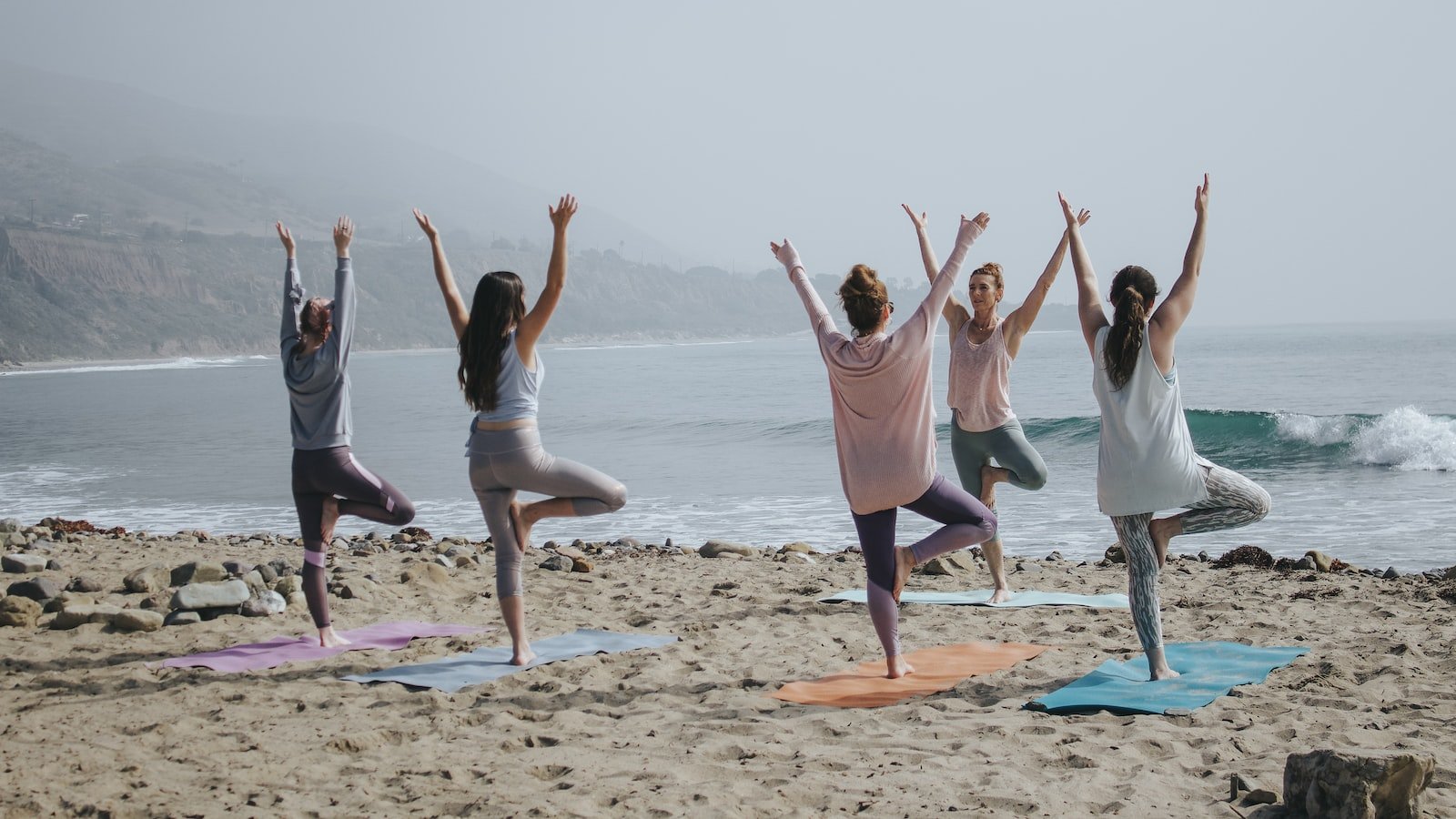Motherhood is often hailed as a time of immense joy and fulfillment. From the eternal bond between a mother and her newborn to the promises of a brighter future, it’s a chapter of life that is anticipated with great excitement. However, nestled amidst this delight, lies a rarely addressed reality – postpartum depression. When the euphoria subsides and the realities of parenthood set in, many new mothers are caught in the clutches of this silent torment. While medication and therapy are often prescribed remedies, there exists a powerful yet overlooked weapon in the fight against postpartum depression – exercise. In this article, we delve into the role of exercise in combating the tumultuous wave of emotions that often accompany the postpartum period, shedding light on its profound potential to heal, restore, and elevate the spirits of mothers worldwide.
Table of Contents
- Exercise as a Natural Remedy to Postpartum Depression
- Understanding the Impact of Exercise on Mental Health
- Designing an Effective Exercise Routine for Postpartum Women
- Incorporating Exercise into the Healing Process: Tips and Considerations
- Seeking Support: How Exercise Groups Can Benefit Postpartum Women
- Q&A
- In Conclusion

Exercise as a Natural Remedy to Postpartum Depression
When it comes to battling postpartum depression, exercise proves to be a powerful and natural remedy that can significantly improve mental well-being for new mothers. The endorphins released during physical activity have a remarkable impact on mood, reducing symptoms of depression and anxiety. Engaging in a regular exercise routine not only helps combat the challenges of postpartum depression but also provides a host of other health benefits.
Here are some ways in which exercise can alleviate and prevent postpartum depression:
- Boosting mood: Exercise triggers the release of endorphins, which are known as “feel-good” hormones. These endorphins can enhance mood and reduce feelings of sadness and depression.
- Reducing stress and anxiety: Physical activity has been shown to reduce stress and anxiety levels. This can be particularly helpful for new mothers who may experience heightened stress due to the demands of caring for a newborn.
- Improving self-esteem: Regular exercise can help improve self-esteem and body image, which may be negatively impacted during postpartum depression. Achieving fitness goals and taking care of one’s physical health can boost confidence and overall well-being.
- Promoting social connections: Engaging in exercise can provide opportunities for new mothers to connect with others who may be going through similar experiences. Joining a postnatal exercise class or participating in a local mother’s group can offer much-needed social support and a sense of community.
- Boosting energy levels: Fatigue is a common symptom of postpartum depression. However, exercise increases energy levels, allowing new mothers to feel more energized and able to tackle daily tasks.
Incorporating exercise into the postpartum journey can be done gradually, starting with gentle activities such as walking, stretching, or postnatal yoga. It’s important for new mothers to listen to their bodies and consult with their healthcare provider before beginning any exercise regimen.

Understanding the Impact of Exercise on Mental Health
Physical Activity and Mental Well-being
Regular exercise not only benefits physical health but also has a profound impact on mental well-being. Engaging in physical activity helps to reduce symptoms of stress, anxiety, and depression as well as enhance mood and overall mental clarity. By releasing endorphins, commonly known as “feel-good” hormones, exercise can elevate your spirits and provide a sense of fulfillment and accomplishment. It offers a natural way to combat negative emotions and improve self-esteem and self-confidence.
The Power of Fitness in Stress Reduction
Exercise serves as a powerful tool in managing stress levels. Whether it’s going for a jog, practicing yoga, or joining a fitness class, physical activity helps reduce stress hormones in the body while stimulating the production of endorphins, promoting a sense of relaxation and tranquility. Moreover, regular exercise can enhance cognitive function and improve sleep quality, which are essential aspects for maintaining a healthy and balanced mental state.
Exercise as a Catalyst for Building Resilience
Engaging in regular physical activity can also contribute to the development of resilience, the ability to bounce back from adversity. By setting and achieving fitness goals, you can cultivate determination, perseverance, and discipline, which can translate into other areas of your life. Exercise provides an opportunity to overcome challenges, push through limitations, and build mental strength. It serves as a metaphorical journey that builds character and fosters a positive mindset that can be applied to various aspects of life. So, lace up your sneakers and let exercise become your partner in boosting mental well-being and embracing a healthier lifestyle.
Designing an Effective Exercise Routine for Postpartum Women
After giving birth, it is important for postpartum women to gradually and safely ease back into an exercise routine. This not only helps in regaining strength and stamina, but also promotes mental well-being and aids in the recovery process. When designing an exercise routine specifically tailored for postpartum women, it is crucial to focus on exercises that prioritize core strength, pelvic floor stability, and overall functionality.
To ensure a well-rounded and effective routine, consider incorporating the following elements:
- Gentle Cardiovascular Activities: Begin with low-impact exercises like brisk walking, swimming, or stationary cycling. These activities help to improve cardiovascular health without putting excessive strain on the body.
- Pelvic Floor Exercises: Kegels and other pelvic floor exercises should be included to strengthen and restore the pelvic floor, which can weaken during pregnancy and childbirth.
- Resistance Training: Incorporate bodyweight exercises, resistance bands, or light dumbbells to improve muscular strength and endurance. Focus on full-body movements that engage multiple muscle groups.
- Core Strengthening: Perform exercises that target the deep core muscles, such as planks, bird dogs, and modified versions of traditional abdominal exercises.
- Flexibility and Stretching: Include gentle stretching exercises to improve flexibility and promote relaxation.
Remember, it is crucial for postpartum women to listen to their bodies and seek guidance from healthcare professionals when necessary. Start slowly, gradually increasing the intensity and duration of exercises. By designing an exercise routine that prioritizes safety, proper form, and individual needs, postpartum women can embark on a journey towards improved overall fitness and well-being.

Incorporating Exercise into the Healing Process: Tips and Considerations
When it comes to recovering from an injury or illness, physical activity may not be the first thing that comes to mind. However, incorporating exercise into the healing process can actually have numerous benefits for both the body and mind. Here are some tips and considerations to help you safely and effectively incorporate exercise into your healing journey:
- Consult with your healthcare provider: Before starting any exercise regimen, it is crucial to consult with your healthcare provider. They can provide personalized recommendations and ensure that exercise is suitable for your specific condition or limitations.
- Start slow and gradually increase intensity: Begin with gentle exercises that won’t strain your body, such as walking or stretching. As you gain strength and flexibility, gradually increase the intensity of your workouts. This progression will help prevent further injury or setback.
- Listen to your body: Pay close attention to how your body responds to different exercises. It’s essential to respect your limits and not push yourself too hard. If you experience pain, dizziness, or any discomfort, it’s time to scale back and modify your routine accordingly.
- Engage in low-impact activities: Opt for low-impact exercises such as swimming, cycling, or yoga to minimize stress on your joints and muscles. These activities can still provide excellent cardiovascular and strength benefits without excessive strain.
- Stay consistent: Consistency is key when it comes to reaping the rewards of exercise during the healing process. Aim for regular workouts, sticking to a schedule that works for you. Remember, even small increments of activity can contribute to your overall recovery.
By incorporating exercise into your healing process, you can enhance your overall well-being, improve circulation, boost mood, and regain strength. Just remember to prioritize safety, listen to your body, and enjoy the journey towards restoring your health.
Seeking Support: How Exercise Groups Can Benefit Postpartum Women
After giving birth, many women experience significant physical and emotional changes. It’s crucial for new mothers to prioritize their well-being and seek support during this transformative period. One powerful avenue for postpartum women to regain strength, improve overall health, and connect with others facing similar challenges is through exercise groups.
1. Physical Benefits:
- Exercise helps postpartum women regain their strength and stamina, which can be particularly essential after pregnancy and delivery.
- Regular physical activity can aid in restoring muscle tone and accelerating weight loss in a healthy and sustainable manner.
- Engaging in exercise can also alleviate common postpartum discomforts, such as back pain and joint stiffness, by increasing flexibility and improving posture.
2. Emotional Well-being:
- Participating in an exercise group provides a supportive and non-judgmental environment, allowing postpartum women to discuss their experiences, concerns, and triumphs with others who are going through similar journeys.
- The release of endorphins during exercise can boost mood, reduce stress, and combat symptoms of postpartum depression.
- Connecting with other mothers can foster new friendships and a sense of community, mitigating feelings of loneliness or isolation that can arise during the postpartum period.
3. Accountability and Motivation:
- Being part of an exercise group offers accountability and motivation to maintain a consistent exercise routine, providing structure to a new mother’s schedule.
- Group activities, such as outdoor walks or fitness classes, help alleviate the self-imposed pressure of trying to exercise alone while caring for a newborn.
- The camaraderie and encouragement within the group can inspire participants to push past their limits and achieve their fitness goals.
By joining exercise groups specifically designed for postpartum women, new mothers can harness the power of physical activity to not only regain their pre-pregnancy strength but also find invaluable support. These groups become safe spaces filled with understanding, encouragement, and connections that aid in the overall recovery and well-being of postpartum women.
Q&A
Q: How does exercise help in combating postpartum depression?
Exercise helps by stimulating the release of endorphins, which are known as our body’s natural feel-good hormones. It also increases energy levels, promotes better sleep, and improves overall mood and well-being.
Q: What are the recommended types of exercises for women with postpartum depression?
Women with postpartum depression can benefit from a variety of exercises such as brisk walking, jogging, swimming, yoga, or even dancing. It’s important to choose activities that are enjoyable and can be easily incorporated into daily routines.
Q: Can exercise replace medication or therapy for postpartum depression?
Exercise alone cannot replace medication or therapy, but it can be a complementary treatment. It is best to consult with a healthcare professional who can help create an individualized treatment plan that may include exercise, medication, therapy, or a combination of these approaches.
Q: What is the recommended frequency and duration of exercise for combating postpartum depression?
It is recommended to engage in moderate-intensity aerobic exercise for 150 minutes per week, spread across several days. However, it’s essential to start slowly and gradually increase the duration and intensity of workouts to avoid overexertion.
Q: Are there any precautions to consider before starting an exercise routine for postpartum depression?
Before starting any exercise program, it is crucial for women to consult with their healthcare provider, especially if they had complications during pregnancy or delivery. Also, it’s important to listen to your body and not push yourself too hard. Start slowly and build up gradually as your strength and endurance improve.
Q: How can new moms find the time and motivation to exercise with a newborn?
Finding time and motivation can be challenging, but incorporating exercise into daily routines is possible. New moms can involve their babies by going for stroller walks, joining mommy-and-me fitness classes, or doing home-based workouts during nap times. Setting realistic goals and seeking support from loved ones can also help maintain the motivation to exercise.
Q: Besides exercise, are there any other lifestyle changes that can aid in combating postpartum depression?
In addition to exercise, maintaining a healthy and balanced diet, getting enough sleep, seeking social support, and practicing self-care activities like meditation or deep breathing exercises can contribute to combating postpartum depression. Taking small steps towards a healthier lifestyle can make a significant difference in overall well-being.
In Conclusion
In sum, the transformative power of exercise in combating postpartum depression cannot be overstated. As mothers embark on the beautiful journey of parenthood, it is only natural that they face emotional challenges along the way. However, through the simple act of moving their bodies, moms can unlock a world of benefits that extend far beyond the physical.
Exercise not only enhances mood, but it serves as a reminder that mothers are strong, capable, and deserving of self-care. Whether it be a gentle stroll in the park, a vigorous dance class, or a rejuvenating yoga session, the options are endless. The magic lies not in the intensity of the workout, but in the intention to prioritize oneself amidst the chaos of new motherhood.
By engaging in regular physical activity, women can restore a sense of control over their bodies and minds. The release of endorphins, commonly known as the “feel-good” hormones, fosters a lasting sense of well-being and aids in alleviating the debilitating symptoms of postpartum depression. Over time, exercise has the remarkable ability to rebuild confidence and self-esteem, reinforcing the notion that motherhood is not a sacrifice but an opportunity for personal growth.
Moreover, the social aspect of exercise cannot be ignored. Mothers who participate in group classes or join fitness communities often find solace in connecting with other women sailing on the same sea of emotions. In these shared experiences, new bonds are formed, support is exchanged, and isolation is shattered. Exercise becomes a conduit for building a strong network of like-minded individuals who understand the unique struggles faced by mothers.
As society continues to grapple with the complexities of postpartum depression, it is imperative that we approach this issue from a holistic perspective. Several factors contribute to maternal mental health, but exercise serves as a beacon of light, gently guiding mothers towards healing and empowerment. Through movement, women can redefine their narratives, reclaim their identities, and ultimately flourish in the realm of motherhood.
In embracing the role of exercise in combating postpartum depression, we unlock a world of possibilities for mothers everywhere. It is our hope that this knowledge can reach those who need it most, melting away the shadows of despair and illuminating the path to a brighter, more fulfilling future. Thus, let us celebrate the power of exercise, not only as a means to regain physical strength, but as a catalyst for emotional restoration and the beginning of a joyful journey into motherhood.
As an affiliate, my content may feature links to products I personally use and recommend. By taking action, like subscribing or making a purchase, you’ll be supporting my work and fueling my taco cravings at the same time. Win-win, right?
Want to read more? Check out our Affiliate Disclosure page.